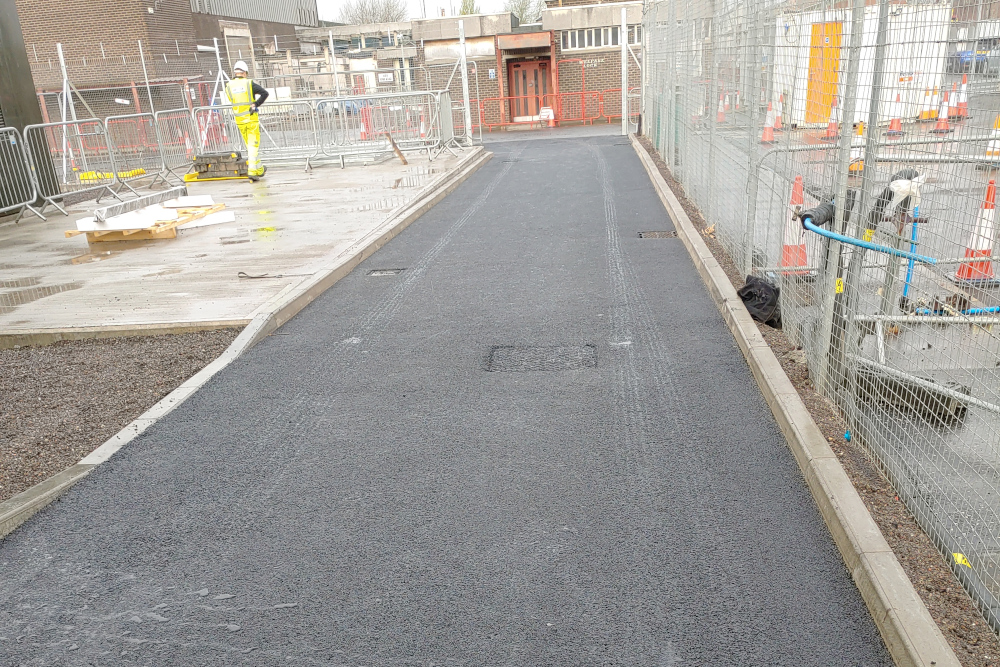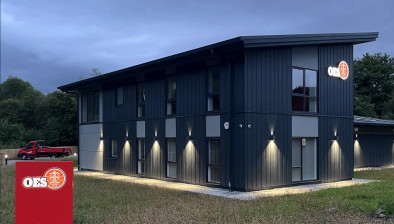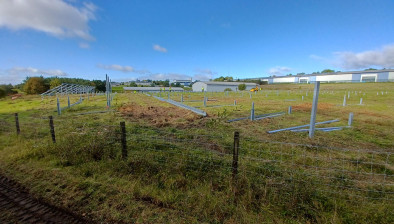Discarded plastic recycled into tarmac for Scottish Water regeneration project
A revolutionary new tarmac product made from discarded plastic has been used in a major Scottish Water regeneration project in Glasgow.

The tarmac, which is made from plastic waste which cannot be recycled and would otherwise be destined for landfill or incineration, has been used to build an access road to a new energy centre being created by Scottish Water Horizons, the business arm of Scottish Water.
The state-of-the-art energy centre, based at Scottish Water’s Dalmarnock Waste Water Treatment Works (WWTW), is part of a larger district heat network project which will deliver low carbon energy to the new Clyde Gateway Regeneration and Innovation District in the east end of the city.
Just over 414 kg of plastic waste – the equivalent of 105,000 plastic bags – was used by FES Group, working with Scottish Water Horizons, to create the temporary road at the Dalmarnock site, offsetting over 730kg of carbon emissions. The plastic tarmac was manufactured and supplied by Lockerbie-based firm MacRebur.
The plastic is added to asphalt, the sticky black liquid used to build roads, by combining specially selected polymers with an activator developed to create the tarmac, which reduces plastic pollution and has been proven to significantly improve road durability.
Due to the type of plastics selected for use, their melting point allows them to chemically bond with asphalt, resulting in an inseparable mixture which has been rigorously proven to stop microplastics from entering local water courses.
The unique formula also maximises the use of bitumen – naturally occurring deposits of petroleum – helping to reduce the need for fossil fuels in the final product.
The Clyde Gateway Heat Network Project, due for commissioning later this summer, will use a combination of technologies to generate efficient, sustainable heat and distribute it to Scotland’s largest regeneration project to date.
The new ‘plastic’ road at Dalmarnock is just one of the ways Scottish Water Horizons and FES are using innovation to enable sustainable construction and support Scotland’s ambitious Net Zero Emissions targets.
Charles Easton, support services director at FES, said: “The FES Group are consistently striving to deliver innovations that challenge traditional construction methods while meeting functional requirements.
“The plastic road solution is a great example of FES and Scottish Water Horizons collectively pushing the boundaries of sustainable design and construction during another successful green energy project”
Finn Hall, civil engineer at MacRebur, said: “The shared values of sustainability between parties meant this project was an outstanding success, and the commitment to achieving net zero through this project is admirable.”
Donald MacBrayne, business development manager at Scottish Water Horizons, added: “We’ve partnered with FES on a number of projects so they understand how important it is to us to support sustainable infrastructure and do everything we can to help protect the environment.
“The plastic road at our Dalmarnock project has been a great success and showcases the incredible innovation which is happening to help protect our planet.
“We’re committed to supporting Scotland’s Net Zero Carbon ambitions, and our Clyde Gateway district heat network is just one of the ways we’re helping to do this.”





















